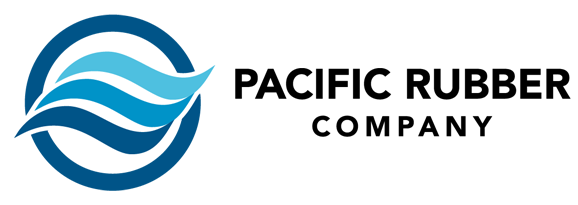BMS Specifications
Boeing Materiel Specifications (BMS) play a pivotal role in the rubber industry by setting rigorous standards for the quality, performance, and safety of rubber materials used in aerospace applications. These specifications are meticulously crafted by Boeing, a global leader in aerospace manufacturing, to ensure that rubber components meet the stringent requirements necessary for reliable and durable performance in aircraft and space vehicles. BMS standards cover a wide range of rubber materials, including elastomers, seals, gaskets, O-rings, and other vital components, contributing to the overall safety and functionality of aerospace systems.
The rubber industry benefits significantly from Boeing Materiel Specifications due to their comprehensive nature. BMS documents outline not only the material’s physical and chemical properties but also provide guidance on manufacturing processes, testing methods, and quality control procedures. This level of detail promotes consistency and uniformity in rubber production, helping manufacturers in the industry achieve consistent product quality and performance that meet the demanding needs of aerospace applications.
Safety is paramount in the aerospace sector, and BMS guidelines prioritize the development of rubber materials that can withstand extreme conditions such as high temperatures, pressure differentials, and exposure to chemicals and fluids. This emphasis on durability and resilience is essential to ensure the rubber components’ functionality over the lifecycle of aircraft and space vehicles, minimizing the risk of failure and enhancing overall safety for crew, passengers, and cargo.
Boeing Materiel Specifications are continuously updated to incorporate advancements in rubber technology, industry best practices, and lessons learned from real-world applications. This dynamic approach ensures that the rubber industry remains at the cutting edge of materials science, enabling the development of innovative rubber solutions that can address the evolving challenges of aerospace engineering. Manufacturers and suppliers in the rubber industry rely on BMS standards to guide their research, development, and production efforts, facilitating collaboration between different stakeholders and contributing to the growth of the sector as a whole.
In conclusion, Boeing Materiel Specifications serve as a cornerstone in the rubber industry’s relationship with aerospace manufacturing. By setting exacting standards for rubber materials and components, BMS documents enable the creation of high-performance, reliable, and safe products that are integral to the aviation and space sectors. These specifications embody the commitment to quality and innovation that both Boeing and the broader rubber industry share, ensuring that aerospace systems continue to operate with the highest levels of precision, efficiency, and safety.
- BMS Specifications
BMS 1-52
BMS 1-57
BMS 1-62
BMS 1-71
BMS 1-72
BMS 1-73
BMS 1-74
BMS 1-76
We are positioned to provide affordable solutions for long or short runs thanks to our flexible molding production capabilities and custom rubber compositions. To fully comprehend their difficulties and offer them specialized solutions, we collaborate closely with our customers. To kickstart your production, we also provide help with tool design.
Common Name:
Molded Slabs (FINISH)
Generally Resistant To:
Moderate Chemicals and Acids, Ozone, Oils, Fats, Greases, and Solvents
ASTM D 2000 / SAE J200 Classification:
BC, BE
Chemical Name:
Polychloroprene
Generally Attacked By:
Esters, Ketones, Chloronated, Aromatic and Nitro Hydrocarbons
MIL-R-3065 / SAE J-14 / MIL-STD-417 Classification:
SC
ASTM D-1418 Designation:
CR
Elongation:
100% to 800%
Hardness Range (Durometer Shore A):
20 to 95
Compression Set:
Good
Abrasion Resistance:
Very Good to Excellent
Impact Resistance:
Good to Excellent
Rebound Rating:
Fair to Very Good
Tear Resistance:
Good
Flame Resistance:
Very Good to Excellent
Flex Cracking Resistance:
Good to Very Good
Minimum Service Temperature:
-30°F to -70°F
Maximum Service Temperature:
+220°F to +280°F
Recommended Shelf Life:
5 to 10 years
Ozone Resistance:
Good
Steam Resistance:
Poor to Good
Weather Resistance:
Poor to Good
Oxidization Resistance:
Good
Gas Permeability:
Fair to Good
Sunlight Resistance:
Good to Very Good
Water Resistance:
Excellent
Radiation Resistance:
Good, 1 x 105 Ga Gy
Poor, 9 x 105 Ga Gy
Acetone:
Minor to Moderate Effect
Amonium Hydroxide:
Recommended: Little to Minor Effect
Animal Fats:
Minor to Moderate Effect
Carbon Dioxide:
Minor to Moderate Effect
Chlorine:
DRY: Moderate to Severe Effect
WET: NOT RECOMMENDED
Fluorine (Liquid):
– – –
Fuel Oil:
Minor to Moderate Effect
Gasoline:
Minor to Moderate Effect
Hydrochloric Acid 37%:
HOT: NOT RECOMMENDED
COLD: Minor to Moderate Effect
Hydrochloric Acid Concentrate 37%:
HOT: NOT RECOMMENDED
COLD: Minor to Moderate Effect
Kerosene:
Moderate to Severe Effect
Methyl Ethyl Ketone:
NOT RECOMMENDED
Mineral Oil:
Minor to Moderate Effect
Naptha:
Moderate to Severe Effect
Natural Gas:
RECOMMENDED: Little or Minor Effect
Nitric Acid:
Concentrate: Moderate to Severe Effect
Dillute: RECOMMENDED: Little or Minor Effect
Red Fuming: Minor to Moderate Effect
Petroleum:
Below 250: Minor to Moderate Effect
Above 250: NOT RECOMMENDED
Phosphoric Acid:
20%: Minor to Moderate Effect
45%: Minor to Moderate Effect
Propane:
NOT RECOMMENDED
Salt Water:
RECOMMENDED: Little or Minor Effect
Skydrol:
Skydrol 500: NOT RECOMMENDED
Skydrol 7000: NOT RECOMMENDED
Sodium Hydroxide:
RECOMMENDED: Little or Minor Effect
Sulfuric Acid:
Concentrate: NOT RECOMMENDED
Dillute: Minor to Moderate Effect
20% Oleum: NOT RECOMMENDED
Toluene:
NOT RECOMMENDED
Transformer Oil:
Minor to Moderate Effect
Vegetable Oils:
Minor to Moderate Effect
Vinegar:
RECOMMENDED: Little or Minor Effect
- Actual shelf life could vary dramatically based on storage conditions
- Store in a cool, dry place with temperature below 75°F
- Keep away from direct heat or open flames
- Avoid contact with solvents or other fluids
- Do not store in direct sunlight
- Keep products wrapped or sealed to minimize the absorption of moisture
- Store in a relaxed condition free from tension, compression or other deformation
See Rubber Storage Conditions for more information about how to properly store your rubber products.

